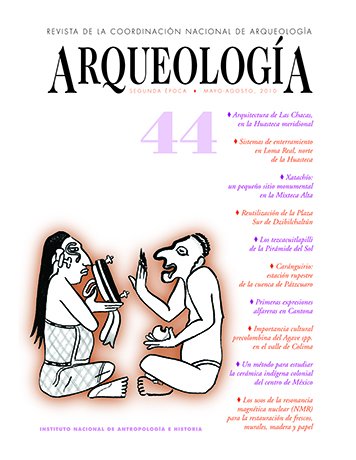Published 2010-08-01
How to Cite
Abstract
At the site of Loma Real, Altamira, Tamaulipas, a little more than fifty human burials have been recovered that date to the final phase of the Formative Period. This study has made it possible to propose two burial systems: the first corresponding to the Tantuán II phase and the second to Tantuán III, from 350 B.C. to A.D. 200. The data come from domestic contexts in both phases. The article presents the results of Excavation Unit 1 and addresses some perimortem or antemortem cultural practices recorded in both systems. At the end of this article, discussion examines information available on Formative burial systems in the northern Huasteca region and compares it with that of the Loma Real material. This leads to propose two burial systems that share an extended, ventral position for the first system and a dorsal position for the second. The earlier system is characterized by predominantly female subadult individuals, not seen in the second system, although differential treatment for individuals in early childhood was noted.

